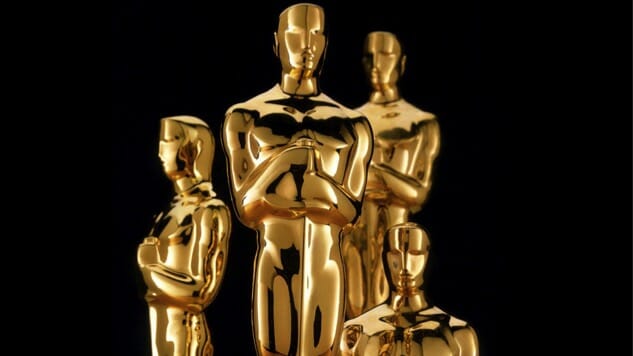Should the Oscars Go Gender-Neutral?

This year, MTV’s Movie Awards will be a little different. In part of a shake-up that also includes expanding the ceremony to recognize TV shows, there will now be fewer film acting prizes to give away. That’s because MTV has decided to abolish gender-specific acting categories altogether. Instead, the MTV Movie Awards will in 2017 debut a neutral Best Actor in a Movie category—something critics have been pushing for from the major film awards for years.
MTV’s reasoning for eliminating gender-split categories is that their audience “doesn’t see male-female dividing lines.” It’s true that generations coming up now, more likely to catch the MTV Movie Awards than older audiences (it’s not been called the “Golden Globes for millennials” for nothing), have less restrictive views on gender than generations past. The move is also a small bit of defiance in a nation presided over by Donald Trump and his set of retro-topian Republicans. Where the new political establishment seeks to regress on rights across the spectrums of sexuality and gender, where alt-right ghouls build sizeable followings insisting gender fluidity and the struggle of transgender people aren’t real, MTV has followed the Grammys—which started with gender-neutral awards categories a few years ago and hasn’t looked back—in pushing in the opposite direction.
Making film awards gender-neutral isn’t just a means of recognizing that the world has changed. At a time when men are undeniably still the most visible and powerful among us, gender-neutrality insists that everyone exists on a level playing field. It goes without saying that male and female actors, forever considered separately at movie awards, should be considered as though their efforts have equal weight; not to mention that those who don’t identify as male or female should have the chance to be considered for awards like anybody else, as Billions’ Asia Kate Dillon, who identifies as non-gender binary, recently argued in a letter to the Emmys. Critics have for years been making these very arguments. So now that MTV has introduced gender-neutral acting awards, what are the big ones—the Oscars, the Golden Globes—waiting for?
-

-

-

-

-

-

-

-

-

-

-

-

-

-

-

-

-

-

-

-

-

-

-

-

-

-

-

-

-

-

-

-

-

-

-

-

-

-

-

-








































